Fleet decision-makers are rarely underworked. Most would admit they have plenty to keep them occupied during the week simply managing the drivers of their cars, vans and/or trucks. But, in utilities, the role frequently comes with the added complexity of plant.
At OCU Group, a family-owned contractor based in Stockport, this means assuming responsibility for everything from cars to £3 million directional drilling rigs, and from light commercial vehicles (LCVs) to 80-tonne low loaders.
Stephen Jackson (pictured), OCU Group head of plant and transport, is the man tasked with ensuring the business runs smoothly and efficiently, by keeping the vehicles on the road and the plant functional.
This objective is, he says, his “number one priority”, supported by a team which includes a plant and transport manager, a fleet manager plus assistant, hire desk manager, process manager, assistant plant and transport manager, breakdown manager, directional drilling specialist and six regional managers who act as the “eyes and ears” of his department within the operational centres.
“My priority is to keep the wheels turning and to keep the fleet compliant,” he says.
“If every team member is in a van and working safely, I’m meeting expectations. Everything else is icing on the cake.”
He is a firm believer in the benefits of accreditation and is a member of both Logistics UK’s Van Excellence and FORS (Fleet Operation Recognition Scheme), where the company has attained silver membership.
Fleet decision-makers are rarely underworked. Most would admit they have plenty to keep them occupied during the week simply managing the drivers of their cars, vans and/or trucks. But, in utilities, the role frequently comes with the added complexity of plant.
At OCU Group, a family-owned contractor based in Stockport, this means assuming responsibility for everything from cars to £3 million directional drilling rigs, and from light commercial vehicles (LCVs) to 80-tonne low loaders.
Stephen Jackson (pictured), OCU Group head of plant and transport, is the man tasked with ensuring the business runs smoothly and efficiently, by keeping the vehicles on the road and the plant functional.
Number one priority
This objective is, he says, his “number one priority”, supported by a team which includes a plant and transport manager, a fleet manager plus assistant, hire desk manager, process manager, assistant plant and transport manager, breakdown manager, directional drilling specialist and six regional managers who act as the “eyes and ears” of his department within the operational centres.
“My priority is to keep the wheels turning and to keep the fleet compliant,” he says.
“If every team member is in a van and working safely, I’m meeting expectations. Everything else is icing on the cake.”
He is a firm believer in the benefits of accreditation and is a member of both Logistics UK’s Van Excellence and FORS (Fleet Operation Recognition Scheme), where the company has attained silver membership.
“FORS has taken us to a higher level of compliance and given us guidance on where we need to be operationally,” he says. “It’s about the controls and measurements, such as having robust deadlines on truck testing every six months. We also need FORS to be able to tender on bigger contracts, such as HS2, but it’s more than that – it’s a badge of honour.”
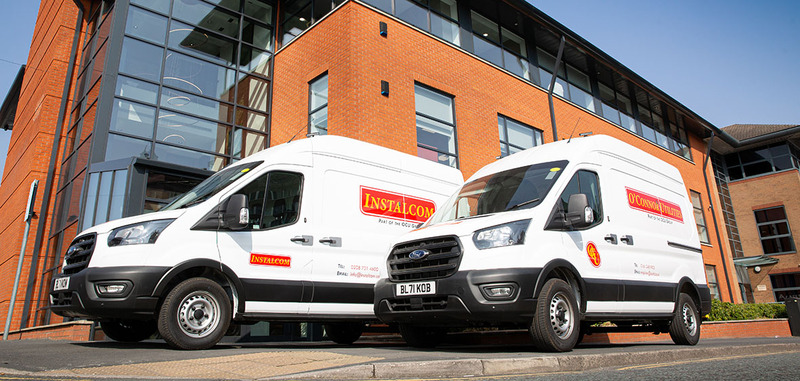
The transient nature of a utilities workforce means OCU Group leans towards spot hire as its primary funding method for cars and vans.
Via Arnold Clark Vehicle Management, it rents 90% of its 250 job-need cars, with the funder providing an outsourced fleet management service.
Jackson brought in Arnold Clark when he joined the business and has negotiated pricing for spot hire that he believes is on a par with leasing.
“The issue with leasing is tying yourself into a three-year contract; with spot hire, we have no commitment,” he says.
“A selling point for the business, when recruiting, is that starters always get a new car, not one that has been reallocated.”
Rental periods range from 24 hours (some starters don’t turn up for their first day) to a maximum of two years, nine months, which ensures the vehicles return to Arnold Clark before the first MOT is due.
It’s a reciprocal arrangement; Arnold Clark wants the cars back at that time to feed into its dealer network.
OCU Group’s 600 vans are split 70:30 – 70% are rented via Dawson Group, 30% are bought outright by the company.
Specialist vehicles
The 180 owned vans are all specialist vehicles undergoing conversions; for example, for the fibre splicing engineers, which carry an £8,000 fit-out bill.
Operating cycles for the standard rental vans, which are typically ply-lined, are similar to cars to prevent the cost of MOTs, although the current vehicle supply shortages are forcing OCU Group – like many fleet peers – to keep its vehicles for longer.
“The potential issues we’re seeing are a rise in breakdowns, having to MOT the vehicles and the impact on the company’s image if the vans suffer from more bangs and bumps,” Jackson says.
“Although we are facing an element of downtime, we do mobile maintenance on site via Dawsons which helps to reduce any off-road time.”
He also utilises the CheckedSafe defect reporting app which feeds directly into Dawsons’ maintenance department for seamless and immediate action.
The company owns all its 150 trucks, which range from 7.5-tonne dropsides and tippers to those 80-tonne low loaders, used to transport the big plant assets. They are generally kept for a maximum of five years, a much shorter lifecycle than the fleet industry average.
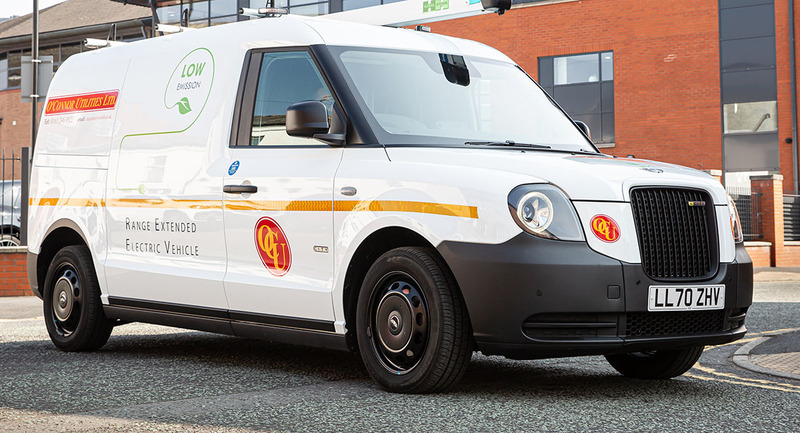
“It’s not an easy life; these vehicles are not high mileage, but road works are harsh and we wouldn’t want to keep them for much longer,” Jackson says.
“We sell them on via auction houses and private sales and, because we look after them with regular maintenance, they are good purchases.”
Legislation is another driver of OCU Group shorter operating cycles: clean air zones, and anticipated move towards zero emission zones and congestion charging are all valid reasons to keep up with the latest engine technology.
All assets, from cars to plant, are fitted with trackers to capture mileage, misuse and fuel efficiency and to prevent theft and aid recoveries.
The vans and trucks also have slab locks installed to prevent theft and Jackson has resumed fitting steering locks as a visible deterrent. “A van could be full of equipment worth £10,000, so we are very security conscious,” he says. “These steps have helped to reduce the number of thefts.”
Induction programme
Safety and compliance are also high on the agenda. The induction programme for all new starters includes education about the FORS scheme and a 45-minute on-the-road driver assessment.
The group partners with Ignition for its driver training, a reactive approach that tackles repeat offenders in terms of load safety and public complaints. It has more recently put its regional team on ‘train the trainer’ courses to facilitate the induction training and to be more proactive with targeted training.
The regional team also carries out drug and alcohol testing on anyone involved in an incident, as well as random driver checks, while the central team supports with stand-down days, toolbox talks and mailshots reminders on key safety issues.
For the past three years, OCU Group has been deploying cameras across its truck and van fleet. The trucks get a full five-camera set up of front, rear, near side, offside and in-cab driver-facing, while the vans get the front and driver-facing units.
The live feed has many benefits. Seeing the driver identifies any distractions which helps with training, while the systems have also exonerated drivers from potential at-fault incidents and false claims.
They have helped OCU Group to reduce its incidents by 20%, a good return on the £2,000 investment for the trucks and £600 for vans.
“We had help from our insurance partner Axa,” Jackson says. “They put money into the pot to help us fund the cameras and we are also now getting a lower premium.”
The cameras have also had an unexpected benefit: the police have approached us to view evidence “about something not related to our drivers because they can see that we have the cameras”. He adds:
“We monitor everything: cameras, trackers, CheckedSafe, fuel usage via Allstar – we monitor daily, and we follow up anyone who is not compliant.”
Jackson joined OCU Group nine years ago (see 'good grounding in plant' below) when the business was turning over £60 million and operated 300 vehicles; today he is responsible for 1,000 vehicles and 3,500 items of plant.
“This is where plant and transport come together – we need the transport to move the plant,” he says.
Possible acquisitions
Further growth is expected, including possible acquisitions (it bought Wigan-based telecom installation service experts FKS in February), which will result in an expansion of the fleet. Jackson has been there before while at Balfour Beatty Group.
“As the fleet grows, you have to grow the team to the size of the task ahead,” he says.
“I tend to operate a people matrix spreadsheet to plot the team, while treating everyone with respect as there is often uncertainty during change. It’s important to learn from all the fleets and to do a ‘gentle’ integration.”
With a sizeable division of the company – Instalcom, acquired in 2002 – operating in London, Jackson has been piloting electric vehicles with LEVC in anticipation of tightening regulations in the capital.
“We also have a dozen electric cars with Instalcom and we are seeing growing interest when we are recruiting, so we are going into contract hire with them because it makes better financial sense,” he says.
For electric vans, he has run into several limitations over range and their lack of towing capability. There is also some driver acceptance to overcome, not least as the vans go home not back to base and many employees do not have driveways for home charging.
“We are at the start of our journey, but we are trialling them with our Instalcom business in London before going out to the rest of the business in the medium term,” Jackson says. “There are challenges but, as with everything in plant and transport, we will overcome them.”
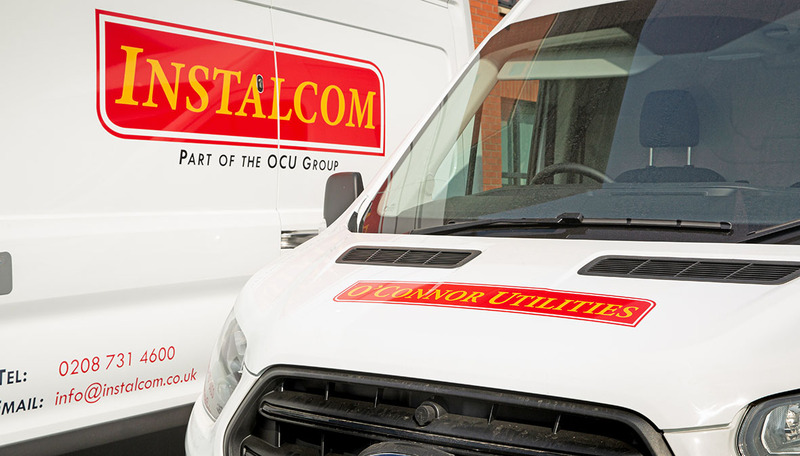
Good grounding in plant
Stephen Jackson began his career as an assistant plant and transport manager at DJ Ryan & Sons. While the work appealed to him, the big selling point was “their corporate image, which was green!”.
At the same time, he was studying for a Nebbs accreditation in road haulage.
The local business offered the ideal grounding – “a good basic apprenticeship” – and he stayed for 18 years, becoming plant and transport manager after five years.
Following a 12-month stint as fleet engineer at Standish Self Hire, Jackson returned to the utilities industry as the plant and transport manager at Kenton Utilities. After its acquisition by Balfour Beatty, he supported the transition before leaving to go self-employed.
“Going from a small private company to a large plc was a different world,” he says.
“I learnt a lot and grew with the business, but it was less flexible and unable to make decisions as quickly as I’d been used to.”
While working at Buckhurst Plant Hire as operations director, he was approached by OCU Group to become head of plant and transport.
That was nine years ago, when the business was turning over £60 million; it is now at £300m with ambitious growth aspirations under a new chief executive that will see Jackson’s fleet expand in the coming years.
“Utilities is never boring,” he says. “It operates at a fast speed and every day is busy from 7am to 6pm. There is always something to achieve and you often have to think on your feet while doing the job.”
Jackson on... red diesel
With the rules on usage of red diesel now preventing companies such as OCU Group for deploying it in plant, Stephen Jackson is considering ways in which he can minimise the resultant rise in cost from using standard ‘white’ diesel.
“We have to more closely monitor usage and how we get fuel to sites, which used to be in drums or via an on-site bowser,” he says.
“We are trialling buying the fuel in full tanks which works out at 3p per litre cheaper and will roll this out across our 12 regional sites if it works.
“We also fit anti-siphoning systems in our vehicles, which helps to prevent theft, while all our drivers have fobs which are matched to the vehicle.”
Login to continue reading.
This article is premium content. To view, please register for free or sign in to read it.







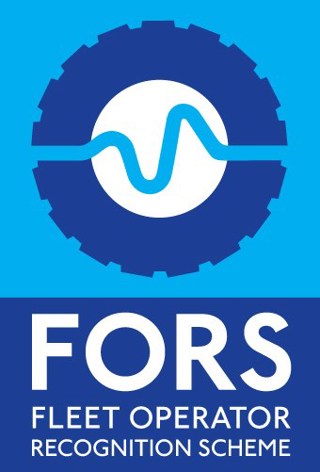
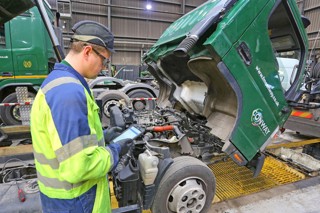















Login to comment
Comments
No comments have been made yet.